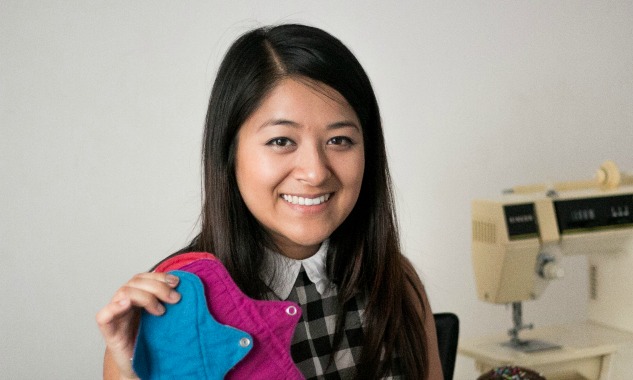Social enterprise spotlight: Ecopads
Share

A university student in Brisbane bothered by the lack of feminine hygiene products for women in developing countries, is making a name for herself in the social-enterprise and small-business sectors.
“Women’s health is something I have always been interested in, and my interest in developing countries has definitely stemmed from my Cambodian background,” says Freeda Thong, who admits to being initially “grossed out” when she found that her sister, inspired by a YouTube video, had been using the more environmentally sustainable option of reusable cloth pads.
Thong did some research and found that disposable pads contribute to tonnes of landfill waste. Disturbed by this fact, she decided to make her own reusable menstrual pads from cotton and water-resistant fabrics. Before long, her idea became a small business, the social enterprise Ecopads.
“My friends started hearing about me making and using the cloth pads,” she says. “This organically grew into a little shop.
“Around the same time I was volunteering for an organisation called Days for Girls. We had workshops every month about sanitary products for women in developing countries. I was very inspired by this work.”
Thong soon realised there was no reason not to combine her passion to help women in developing countries and her drive to ensure her small business was successful and sustainable. After attending an accelerator program, she changed the business model of her bustling enterprise. She reshaped it as a social enterprise that not only makes a profit but also makes a social change.
Believing there is no reason not to make a profit and social change at the same time, Thong came up with the idea of donating an Ecopad to a woman in a developing country for every unit sold.
In the face of competition within the small-business realm, Thong believes the social-enterprise factor “gives us an edge and helps us stand out from the crowd”.
She says one of the most important factors in a sustainable business is to listen to what customers want. Ecopads has teamed up with the Work at Home Moms project – three mothers and Thong handmake all the Ecopads. They have also teamed with a group in India that makes the cloth pads for women in need there.
“We sell other feminine products as well,” says Thong. “All handmade projects we do ourselves and the rest we buy wholesale. As well as being an online business, we sell Ecopad products from several small stores. We have almost reached the 4000 mark with the number of pads we have sold and donated.”
This success has not come without a few bumps and criticisms along the way.
When Thong was selling her pads at a market for the first time, a woman approached her upset that feminine hygiene products were being sold openly, as she felt that it was a taboo topic and not something to be publicised.
“After a 45-minute conversation in which I explained the environmental consequences of disposable pads and the importance of speaking openly about feminine hygiene, she thanked me. She said she never thought about the environmental consequences before.
“This lady is actually now a repeat customer,” says Thong. “It really is all about education and having that conversation.”
She says people often step away the first time they hear about her product, but “I never let it get in my way”.
While running her business, Thong continues her full-time degree studies of speech pathology. “It can be stressful, but it can also be therapeutic. Knowing I am helping the environment and women in need is what keeps me going,” she says.
It had been a struggle at first for her to find the right teams to partner with, and it took hours of research and many early-morning Skype sessions. Thong was lucky enough to find a foundation to partner with from India with an Australian founder. “It is sometimes hard when partnering with people overseas to know they are doing what they say they are doing, but we got really lucky.”
Thong’s hope is that Ecopads continues to expand, and her three- to five-year goal is for the social enterprise to be known in other countries. “We have had a few companies contact us about Ecopads Uganda or Ecopads Nepal,” she says. “If we could go global that would be the ultimate goal.”
This article originally appeared in Third Sector’s March print magazine.

























